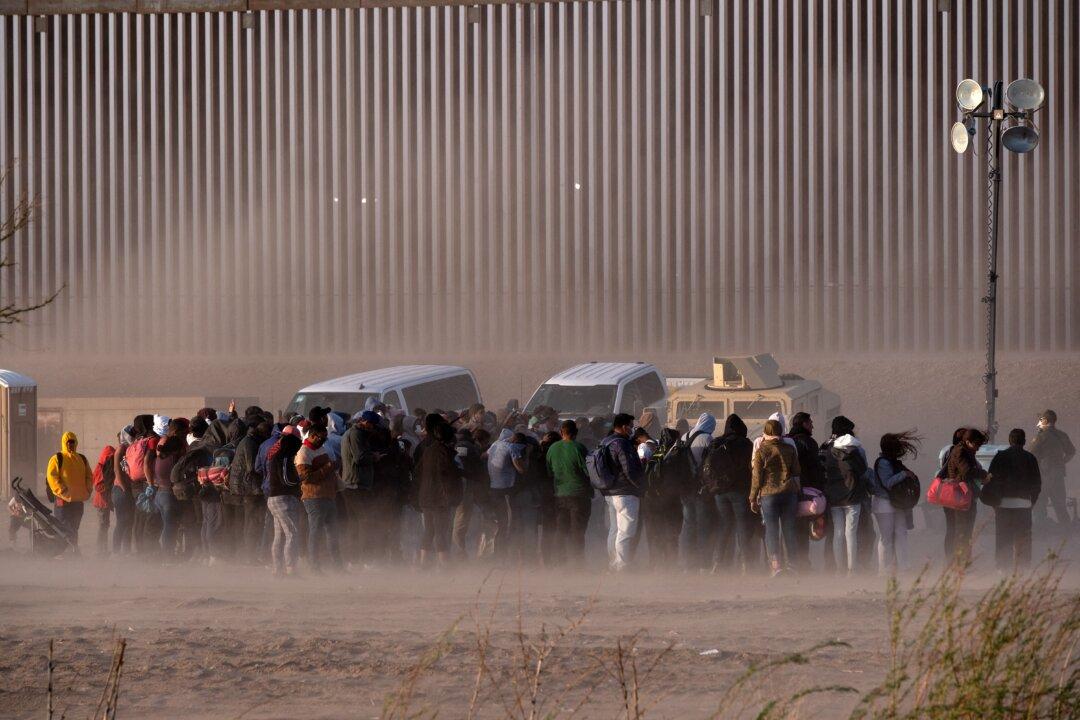
Illegal immigrants wait to be processed by U.S. border agents at the U.S.-Mexico border on March 30, 2023. Guillermo Arias/AFP via Getty Images
Arrests of illegal immigrants at the United States–Mexico border jumped in March by 23 percent over the month before, newly released statistics show.
U.S. authorities carried out 191,899 apprehensions, up from about 156,100 in February, U.S. Customs and Border Protection said.





